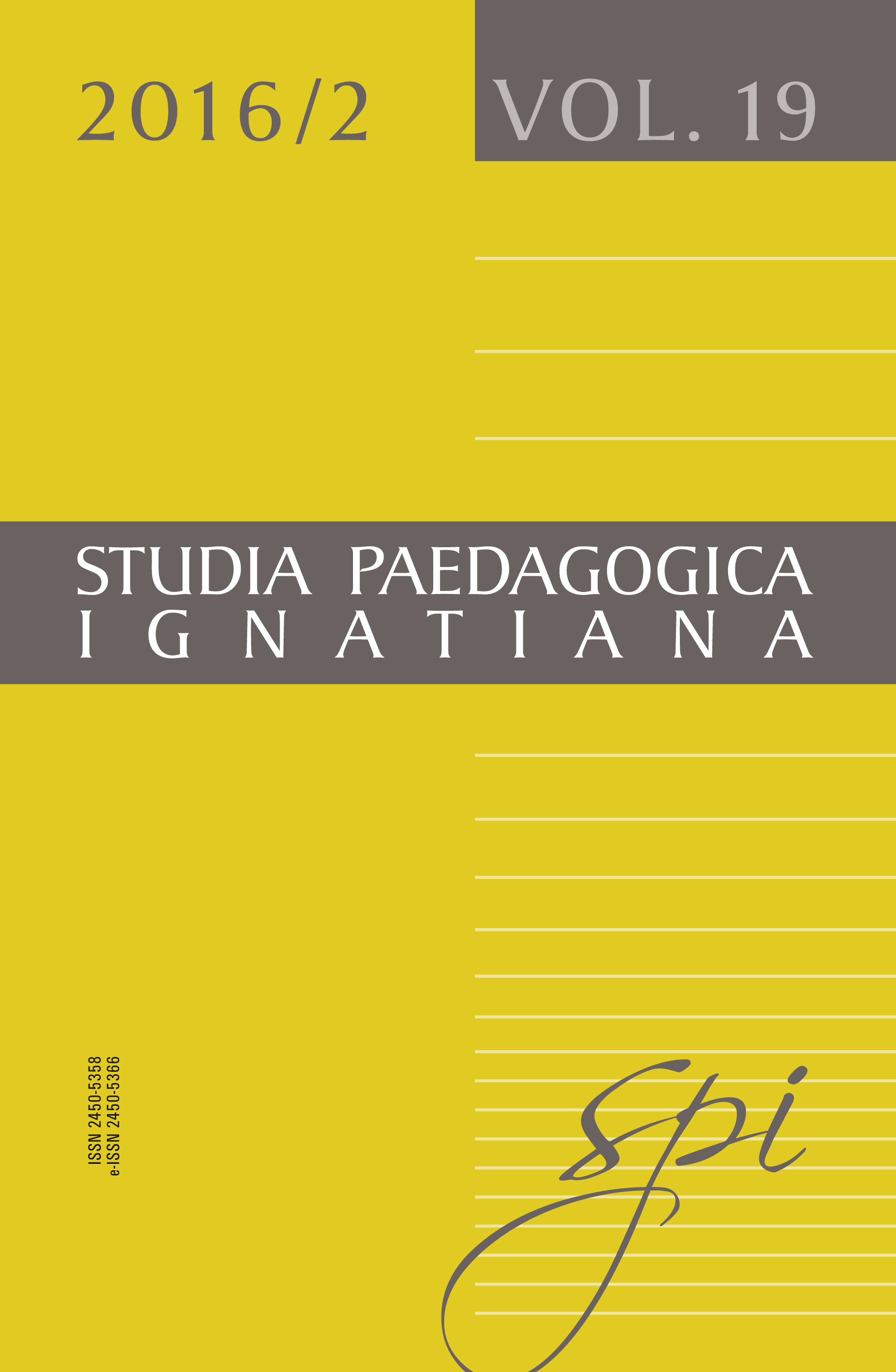Działalność oświatowa polskich towarzystw na Górnym Śląsku na przełomie XIX i XX stulecia
DOI:
https://doi.org/10.12775/SPI.2016.2.002Słowa kluczowe
praca kulturalno-oświatowa, organizacje polskie, formy pracy oświatowej, upowszechnianie kultury polskiej, Górny ŚląskAbstrakt
Na przełomie XIX i XX wieku na Górnym Śląsku rozpoczął się rozwój organizacji polskich. Zamieszkała w tym regionie ludność polskojęzyczna była pozbawiona możliwości edukacji w języku ojczystym. Dlatego organizacje społeczno-kulturalne podejmowały działania kompensujące brak szkoły polskiej oraz rozbudzające poczucie przynależności narodowej mieszkańców regionu. W okresie od roku 1899 do 1914 było ich ponad 200. Stawiały sobie jako cel główny obronę polskości na terenach zamieszkałych przez ludność polskojęzyczną. Realizowano to poprzez upowszechnianie wiedzy, inspirowanie różnych form pracy kulturalnej i oświatowej. Do szczególnie popularnych można zaliczyć akcje odczytowe, prowadzone przez wszystkie organizacje polskie, kursy języka polskiego. Na uwagę zasługuje też dbałość o rozwój czytelnictwa wśród ludności polskiej, poprzez zakładanie polskich biblioteczek w różnych miejscowościach Śląska Opolskiego. Młodzież preferowała uczestnictwo w teatrach amatorskich, które w okresie zimowym wystawiały różne sztuki teatralne. Organizowano wycieczki do Krakowa, Częstochowy, a w czasie karnawału odbywały się zabawy towarzyskie. W ten sposób przeciwstawiano się wpływom niemieckim. W artykule przedstawiono niektóre organizacje i formy ich pracy kulturalno-oświatowej.
Bibliografia
Instytut Śląski w Opolu, Teki Alojza Targa, zbiory specjalne, A 702, t.118, 121.
Mazurek S. Nasza droga do wolności, maszynopis w Bibliotece Instytutu Śląskiego w Opolu.
„Nowiny Raciborskie” 1897 nr 137.
„Świat i Życie” 1948 nr 6 i 10.
Antonów M., Działalność kulturalna polskich towarzystw nas Górnym Śląsku w drugiej połowie XIX i na początku XX wieku w świetle współczesnej prasy polskiej, „Studia Śląskie” 1958, t. 2.
Antonów M., Towarzystwa przemysłowców polskich w Bytomiu, Katowicach i Królewskiej Hucie w latach 1890–1914, „Kwartalnik Opolski”, 1964 nr 3–4.
Fojcik J., Materiały do dziejów ruchu śpiewaczego na Śląsku, Wydawnictwo Śląsk, Katowice 1961.
Grajpel A., Z dziejów tajnej oświaty polskiej w Zabrzu, Kroniki miasta Zabrza 1978.
Historia Śląska, t. 3, cz. 2, red. S. Michalkiewicz, Zakład Narodowy im. Ossolińskich, Wrocław 1985.
Jonca K., Polityka socjalna Niemiec w przemyśle ciężkim Górnego Śląska, Wydawnictwo Śląsk, Katowice 1966.
Kwiatek J., Górnośląska szkoła ludowa na przełomie XIX i XX wieku, Instytut Śląski w Opolu, Opole 1987.
Mazurek S., Z dziejów polskiego ruchu kobiecego, Instytut Śląski w Opolu, Opole 1969.
Mykita-Glensk C., Początki ruchu młodzieżowego na Górnym Śląsku, „Zaranie Śląskie” 1966, z. 4.
Ogrodziński W., Dzieje dzielnicy śląskiej „Sokoła”, Związek Polskich Towarzystw Gimnastycznych „Sokół”, Katowice 1937.
Pater M., Polskie dążenia narodowe na Górnym Śląsku (1891–1914), Centrum Badań Śląskoznawczych i Bohemistycznych Uniwersytetu Wrocławskiego, Wrocław 1998.
Pater M., Polskie postawy narodowe na Śląsku w XIX wieku, cz. II (1871–1990), „Sudety”, Wrocław 1993.
Ponczek M., Towarzystwo Gimnastyczne „Sokół” na Górnym Śląsku. Zarys dziejów 1895–1939, Muzeum Śląskie, Katowice 1987.
Porwol L., Działalność narodowa Karola Piechy z Zaborza, Kroniki miasta Zabrza 1978.
Ręgorowicz L., Wspomnienia śląskie i poznańskie, Instytut Śląski w Opolu, Opole 1976.
Sapia-Drewniak E., Aktywność kulturalna i oświatowa kobiet na Śląsku Opolskim w latach 1922–1939, Związek Górnośląski, Opole 1991.
Targ A., Przyczynek do historii Elsów śląskich, „Zaranie Śląskie” 1964, z. 2.
Wróblewski J., Polskie biblioteki ludowe w zaborze pruskim i na terenie Rzeszy Niemieckiej w latach 1843–1939, Ośrodek Badań Naukowych im. Wojciecha Kętrzyńskiego, Olsztyn 1975.
Pobrania
Opublikowane
Jak cytować
Numer
Dział
Licencja
Autor zgłaszając swój artykuł oświadcza, że:
jest Autorem artykułu (zwanego dalej Utworem) i:
- przysługują mu wyłączne i nieograniczone prawa autorskie do Utworu,
- jest uprawniony/a do rozporządzania prawami autorskimi do Utworu.
Udziela Uniwersytetowi Ignatianum w Krakowie nieodpłatnej, niewyłącznej, nieograniczonej terytorialnie licencji do korzystania z Utworu na następujących polach eksploatacji:
- utrwalania utworu w formie papierowej, a także na nośniku cyfrowym lub magnetycznym;
- zwielokrotnienia utworu dowolną techniką, bez ograniczenia ilości wydań i liczby egzemplarzy;
- rozpowszechniania utworu i jego zwielokrotnionych egzemplarzy na jakimkolwiek nośniku, w tym wprowadzenia do obrotu, sprzedaży, użyczenia, najmu;
- wprowadzenia utworu do pamięci komputera;
- rozpowszechniania utworu w sieciach informatycznych, w tym w sieci Internet;
- publicznego wykonania, wystawienia, wyświetlenia, odtworzenia oraz nadawania i reemitowania, a także publicznego udostępniania utworu w taki sposób, aby każdy mógł mieć do niego dostęp w miejscu i czasie przez siebie wybranym;
- w zakresie praw zależnych do Utworu, obejmujących w szczególności prawo do dokonania koniecznych zmian w Utworze, wynikających z opracowania redakcyjnego i metodycznego, a także do dokonania tłumaczenia Utworu na języki obce.
Udzielenie licencji następuje z chwilą przekazania Utworu na rzecz Uniwersytetowi Ignatianum w Krakowie. Uniwersytet Ignatianum w Krakowie jest uprawniony do udzielania dalszych sublicencji do Utworu, w zakresie udzielonego prawa. Licencja jest ograniczona czasowo i zostaje udzielona na okres 15 lat, licząc od daty jej udzielenia.
Polityka prywatności
Statystyki
Liczba wyświetleń i pobrań: 513
Liczba cytowań: 0



